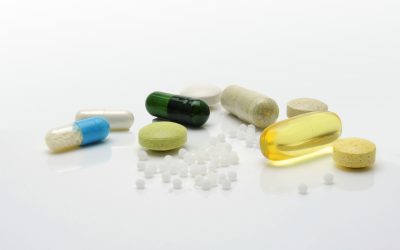The Optimal Fertility Diet: Common Mistakes
When I’m asked what is the optimal fertility diet, I like to follow a few simple rules: eat a diet rich in healthy proteins, complex carbs, healthy fats, and avoid any processed foods. It seems simple enough, however, what many couples don’t realize is that there is a TON of room for error. When it comes to your fertility, having a healthy fertility diet is incredibly important and should not be overlooked! In fact, recent research has shown that a healthy diet is related to better fertility in women and better sperm quality in men6. So if you are trying to conceive, and want to optimize your fertility diet, here are the most common mistakes to avoid!
Not knowing what “processed” food means
A large number of people coming into my office tell me that they eat very healthy. And by that, they mean that they don’t drink pop, eat chips, cookies, and the obvious “junk” foods. Now that’s a great start, but when I take a detailed look at what they actually eat, I often find that each meal or snack has at least one major processed food in it. And when that food makes up a large part of the meal, the overall effect on the body is not positive. Eating a sandwich instead of a fast-food restaurant burger is likely a better choice, but when it comes to optional nutrition for fertility, and the optimal fertility diet, the bread in that sandwich is going to wreak havoc on your health and hormones and should rarely make an appearance in your daily meal choices. Many people are unaware that certain foods, though touted as healthy foods, are still processed.
The most common foods that we forget are actually highly processed and often full of sugar and chemical additives:
- Bread (even those that are “whole grain”)
- Pasta
- Muffins
- Bagels
- Flavored yogourt
- Granola bars
- Crackers
A whole foods diet is one that is made up of real foods – if it had to significantly alter the way it appears in nature, think twice before eating it. Read more on our Fertility Whole Foods Diet here.
Dairy
You may have heard that consuming full-fat milk products for fertility is the way to go. This idea stems from a recent research study which found full-fat milk to be associated with increased fertility in women10. As a result of this recent finding, I see TONS of couples incorporating full-fat dairy into their diets. What this research fails to mention is that milk is quite inflammatory, and inflammation while trying to conceive is not a good thing! Dairy has been shown to cause food sensitivities in many individuals8, and women with fertility conditions including PCOS or endometriosis tend to do a lot worse consuming it in their diets9, 11. So, if milk isn’t the way to go, what about full-fat yogurt? The issue with this aside from the inflammatory nature of dairy is that many of the yogurt products on the market are loaded with sugar. Eating foods high in sugars can cause crazy blood sugar spikes which are known to prevent ovulation altogether3.
A more appropriate way of looking at this research is to consider the possibility that increasing healthy fats in your diet while trying to conceive is beneficial for pregnancy outcomes and a good fertility diet, as opposed to the dairy itself. I suggest you do yourselves a favor and tone it down with dairy altogether!
Fats
On that note, I have a lot to say about fats. All fertility diet recommendations will likely mention increasing intake of healthy fats while decreasing intake of unhealthy fats. For some reason, I find many couples start to abstain from fats altogether. Eating a diet rich in healthy fats is SO important in optimizing fertility, so much so that healthy fats have been associated with increased pregnancy rates and sperm parameters4, 7. As such, my first suggestion is to stop buying any product that says low fat on the label! Look out for fats that are saturated or trans-fat and avoid these as well! Saturated and trans-fats are mostly found in pre-packaged foods and baked goods, but always check labels to confirm.
Now, another mistake I see is couples will buy healthy fats but then cook on high heat turning them into trans-fats. If you are cooking with olive oil or canola oil I am talking to you! Although it’s generally suggested to cook with oils with a smoke point of 400 F, I would argue the higher the smoke point the better. Don’t take the risk! Choose oils with the highest smoke point, including avocado or safflower oil. That being said, continue to enjoy RAW olive oil on salads or any other
Fish
Most fertility diet recommendations, including ours, suggest fish as a great source of healthy protein and fats. Although fish is incredible, two common mistakes I see include buying fish that are high in mercury or simply eating too much fish in a week resulting in a high intake of mercury. Mercury is a toxin that is easily absorbed by the body and tends to build up. During pregnancy, mercury can cross the placenta impairing your baby’s future cognitive function, language and motor skills, and vision abilities13. Opt for low mercury options instead such as salmon, catfish, herring, and sole, and keep your intake of fish to no more than 2-3 times per week!
Protein
Protein is essentially the building block of life so it’s no wonder that increasing protein is often suggested when trying to optimize fertility, and creating a fertility diet! However, a mistake I see ALL the time is increasing protein by increasing the consumption of animal products. Although animal products are an excellent source of protein, they have been linked to a number of health concerns and cause inflammation when consumed in too large a quantity1. Opt for vegetarian protein DAILY and animal protein 3 times per week. Excellent sources of vegetarian protein include soy, legumes, nuts, seeds, and quinoa just to name a few. That said, for men, it’s best to avoid soy as your source of vegetarian protein. Soy is an estrogenic plant that could theoretically interfere with hormone and sperm production; choose another source to be on the safe side2!
Food Packaging
Now, this is a big one! Unfortunately for us, many amazing and otherwise healthy products are sold in plastic packaging, cans, or worse. Food packaging can have major and detrimental effects on our hormonal health and our ability to conceive. Most canned foods and plastics contain a toxin called Bisphenol A, better known as BPA. BPA is a known endocrine-disrupting chemical and is linked to diminished fertility in both men and women5, 12. A common culprit and easy fix are plastic water bottles. Opting for a reusable glass water bottle is a simple place to start. In terms of food packaging, as a general rule stay away from canned and pre-packaged foods as much as possible to decrease your exposure to BPA!
Honourable Mentions
Some quick, honourable mentions that did not make the list but are still VERY important to keep in mind when trying to conceive, and when creating your fertility diet:
- Don’t cook with non-stick pans; these pans contain more endocrine disrupting chemicals which interfere with fertility.
- Buy your animal products from grass-fed, free-range sources. Think of it this way: the unhealthier and unhappier the animal was alive, the worse it will be for your body! Non-grass-fed and free-range sources also tend to have higher quantities of steroids, antibiotics, and other toxins.
- We now know that moderate caffeine consumption of about 200 mg per day is actually okay in preconception and pregnancy6! However in clinical practice I often find this is even too much for certain people. If you are suffering from an estrogen dominant condition such as endometriosis, or are simply exhausted and adrenally fatigued, I am talking to you! Caffeine can affect how the liver metabolizes estrogen, and as such could theoretically impact fertility. For those of you not afflicted by estrogen dominance or adrenal fatigue, 200 mg per day translates into only ONE coffee a day (a tall Starbucks or medium Tim Horton’s). Try your best not to exceed this limit! If you are having caffeine be sure to reduce or cut out added sugar, as it causes blood sugar spikes which prevent ovulation!
As mentioned above, avoid any product that claims to be LOW FAT or LOW SUGAR. If neither of these is present, it is likely being replaced by a chemical!
Need help with your Fertility Diet?
As you can see, even with the best intentions, the right information, and the right ingredients, there are many mistakes to be made when it comes to diet and fertility! It really is SO important to have a healthy diet when trying to conceive. Each person and each couple is unique, and as a result will have unique dietary requirements. That being said, if you are trying to conceive and/or trying to optimize hormonal health, it’s best to consult with a Naturopathic Doctor to learn more! Along the way, I highly suggest keeping these mistakes in mind in order to optimize your fertility and overall health. The old adage of “you are what you eat” isn’t wrong: what you eat specifically mirrors your health and quite literally your fertility too. If you would like more information regarding preconception care, fertility optimization, or hormonal health through diet, at Awaken Life I am here and happy to help!
With love and in health,
Priya
References
- Chai, W., Morimoto, Y., Cooney, R., Franke, A., Shvetsov, Y., Le Marchand, L., Haiman, C., Kolonel, L., Goodman, M. and Maskarinec, G. (2017). Dietary Red and Processed Meat Intake and Markers of Adiposity and Inflammation: The Multiethnic Cohort Study. Journal of the American College of Nutrition, 36(5), pp.378-385.
- D’Adamo, C. and Sahin, A. (2014). Soy foods and supplementation: a review of commonly perceived health benefits and risks. Altern Ther Health Med, 20(1), pp.39-51.
- Diamanti-Kandarakis, E. and Dunaif, A. (2012). Insulin Resistance and the Polycystic Ovary Syndrome Revisited: An Update on Mechanisms and Implications. Endocrine Reviews, 33(6), pp.981-1030.
- Esmaeili, V., Shahverdi, A., Moghadasian, M. and Alizadeh, A. (2015). Dietary fatty acids affect semen quality: a review. Andrology, 3(3), pp.450-461.
- Fujimoto, V., Kim, D., vom Saal, F., Lamb, J., Taylor, J. and Bloom, M. (2011). Serum unconjugated bisphenol A concentrations in women may adversely influence oocyte quality during in vitro fertilization. Fertility and Sterility, 95(5), pp.1816-1819.
- Gaskins, A. and Chavarro, J. (2017). Diet and fertility: a review. American Journal of Obstetrics and Gynecology.
- Hammiche, F., Vujkovic, M., Wijburg, W., de Vries, J., Macklon, N., Laven, J. and Steegers-Theunissen, R. (2011). Increased preconception omega-3 polyunsaturated fatty acid intake improves embryo morphology. Fertility and Sterility, 95(5), pp.1820-1823.
- Jackson, J., Neathery, S. and Kirby, R. (2007). Hidden Food Sensitivities: A Common Cause of Many Illnesses. Journal of Orthomolecular Medicine, 22(1), pp.27-30.
- Phy Ali M, J. (2015). Low Starch/Low Dairy Diet Results in Successful Treatment of Obesity and Co- Morbidities Linked to Polycystic Ovary Syndrome (PCOS). Journal of Obesity & Weight Loss Therapy, 05(02).
- Publishing, H. (2017). Follow The Fertility Diet? – Harvard Health. [online] Harvard Health. Available at: https://www.health.harvard.edu/diseases-and-conditions/follow-fertility-diet [Accessed 27 Sep. 2017].
- The Physicians Committee for Responsible Medicine. (2017). Endometriosis. [online] Available at: http://www.pcrm.org/health/health-topics/endometriosis [Accessed 27 Sep. 2017].
- Rahman, M., Kwon, W., Lee, J., Yoon, S., Ryu, B. and Pang, M. (2015). Bisphenol-A Affects Male Fertility via Fertility-related Proteins in Spermatozoa. Scientific Reports, 5(1).
- US EPA. (2017). Health Effects of Exposures to Mercury | US EPA. [online] Available at: https://www.epa.gov/mercury/health-effects-exposures-mercury [Accessed 26 Sep. 2017].
I want to help you get there. The key to your fertility lies within you.
Let's Awaken it!
More Reading
Naturopathic Medicine in Fertility
Whether you are just starting to try to get pregnant, struggling with getting pregnant or suffering from recurrent miscarriages, a fertility naturopathic doctor can help you along your fertility journey. Naturopathic doctors are trained healthcare professionals with...
The Role of Melatonin in Fertility
Most of us have heard about melatonin in the context of sleep, as a supplement that can impact our circadian rhythm. However, this hormone also plays an important role in female fertility. What is Melatonin? Melatonin is a hormone made by the pineal gland in...
Simple Tips to Improve Your Chances of Conceiving
It’s easy to get caught up in the minor details of what we could be doing better when trying to get pregnant. This can lead to constant thoughts around the effects that our daily activities have on our chances. This self-criticism can feel overwhelming and...




Share This
Share this post with your friends!